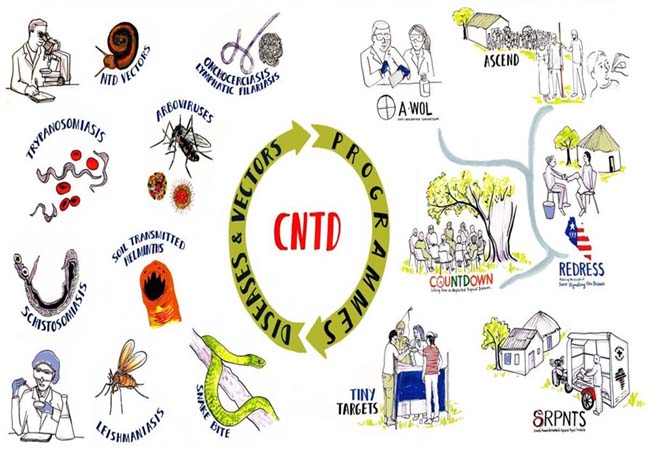The National Coordinator for Neglected Tropical Diseases at the Federal Ministry of Health and Social Welfare, Fatai Oyediran, said two out of every three Nigerians have at a least one of the NTDs.
Oyediran disclosed this on Wednesday at the high-level advocacy meeting with commissioners of health from the 36 states and the FCT in Abuja.
He said approximately 1.7 billion people are affected by NTDs globally, a figure more than three times the number of people affected by HIV, TB and malaria.
“These diseases are linked to poverty, unsafe water, poor sanitation, substandard housing, reservoir for insects and other disease vectors, while the most vulnerable are children and women,” he said.
“Nigeria contributes about 50 per cent to the burden of NTDs in Africa and 25 per cent globally. Also two of every three Nigerians have at a least one NTD,” he stated.
The World Health Organisation defined NTDs as a diverse group of conditions caused by a variety of pathogens (including viruses, bacteria, parasites, fungi and toxins) and associated with devastating health, social and economic consequences.
WHO said NTDs are mainly prevalent among impoverished communities in tropical areas, although some have a much larger geographical distribution. It is estimated that NTDs affect more than one billion people, while the number of people requiring NTD interventions (both preventive and curative) is 1.6 billion.
Some of the NTDs are elephantiasis, soil-transmitted helminthiasis, river blindness, trachoma, schistosomiasis, snakebites, leishmaniasis, Human African Trypanosomiasis, mycetoma, rabies, buruli ulcer, Noma, etc.
The Minister of State for Health & Social Welfare, Dr Iziaq Salako emphasised that NTDs is one of the health challenges affecting millions of Nigerians, particularly those in vulnerable, rural, and marginalised communities.
“These diseases not only cause significant physical suffering but also contribute to social stigma and economic hardship, perpetuating the cycle of poverty,” Salako stated.
The minister highlighted the need for effective public health systems to address the challenges, stressing that prevention, health promotion, and resource optimisation are critical.
“In many countries, including Nigeria, public health systems face the challenge of scarce resources.
“With limited budgets, infrastructure, and personnel, it becomes crucial to maximise the impact of every resource available,” he noted.
He added that the integration of public health activities is not just a strategy for resource optimisation, but an essential approach for addressing the complex and interconnected health challenges Nigeria faces.
In her remarks, the Mandate Secretary for the FCT Health Services and Environment Secretariat, Dr Adedolapo Fasawe, emphasised the need for enhanced advocacy efforts to effectively combat NTDs in Nigeria.
Fasawe noted that sustained awareness campaigns, community engagement, and stakeholder collaboration are critical to addressing the challenges posed by these diseases and achieving significant progress in their prevention and control.


